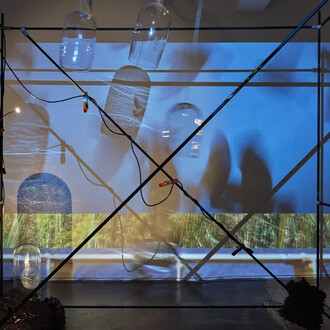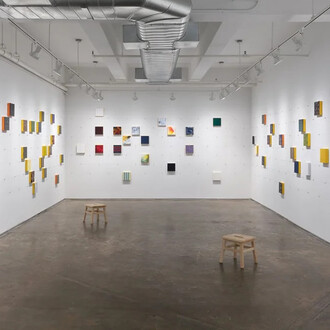Higher Pictures presents Susan Meiselas’ earliest series of photographs, 44 Irving Street 1970 – 1971, following its exhibition at Harvard Art Museums. This is the artist’s fourth solo exhibition with the gallery.
In 1970, while still a student at the Harvard Graduate School of Education, Susan Meiselas was living in a boarding house at 44 Irving Street in Cambridge, Massachusetts. Boarding houses, like the one at 44 Irving Street, often began as large, single-family homes in cities or college towns. As average family sizes decreased and the socioeconomic makeup of neighborhoods changed, these homes were then divided up into smaller units while maintaining a shared kitchen, bathrooms, and common areas. As a result, each of the rooms at 44 Irving Street retained some of the home’s original single-family character.
At Harvard, Meiselas enrolled in a photography course and chose to photograph her neighbors for a class project. Though she didn’t know any of them, she began knocking on their doors and asking to take portraits of them in their rooms. “The camera was this way to connect,” Meiselas remembers. Once she had developed the film, she would make contact sheets to share with her neighbors, initiating a dialogue about how they saw themselves. Their written responses, which Meiselas presented alongside the photographs, provide insights into their lives and how they felt the pictures did or did not capture them. By incorporating their perspectives into the work itself, Meiselas draws out a crucial tension between socially engaged photography as a historical genre and the subjects it purports to depict. The photographs and letters on view in this exhibition are the fruits of those exchanges.
Though boarding houses are often transitory living spaces, Meiselas was drawn to the individuality and self-expression she discovered in each room. This comes across in the images themselves, which show her subjects at home and in situ, surrounded by their personal effects. In return, the letters they wrote are sometimes strikingly honest and revelatory, a written punctum—Roland Barthes’ term for something that pierces the viewer—as a counterpoint to the photographs. This series helped Meiselas develop her conception of “photography as an exchange in the world.” “It wasn’t about the formalism of photography,” she says, “It was about the narrative and the connectivity.”
The exhibition is accompanied by the first monograph of 44 Irving Street 1970 – 1971 by Susan Meiselas published in partnership with TBW Books + Higher Pictures. The dates for the opening and book signing are to be announced during the run of the show. Stay tuned!














